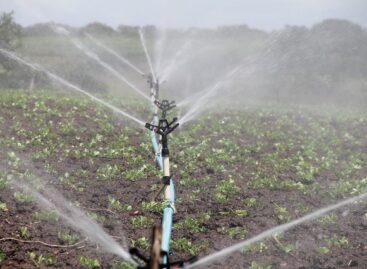New perspectives in rosehip cultivation
The diverse uses of rosehip ensure stable demand, but the development of the sector requires the construction of the processing capacities necessary for the production of various processed products – this was stated at the rosehip professional day held in Leányvár, organized by the Medicinal Plant Association and Product Council and the National Chamber of Agriculture.

(Photo: Pixabay)
The demand for domestic rosehip is unbroken, and demand has resulted in a significant expansion of production in the past decade. As a result of planting applications and continuous demand, the domestic production area has grown from a few hundred hectares to 5,600 hectares in the past decade, most of which is under organic cultivation – this was revealed at the rosehip professional day held in Leányvár, organized by the Medicinal Plant Association and Product Council and the National Chamber of Agriculture. The diverse uses of rose hips – in the food, pharmaceutical and cosmetic industries – provide a stable background for cultivation and processing. The future clearly belongs to plantations that provide a uniform commodity base – as opposed to the collection of wild stocks – which provide a constant quality and quantity of raw materials for the processing industry.
The herbal and fruit tea market segment – together with the continuous demand – is slowly becoming saturated
Consequently, continuous and dynamic innovation is essential to ensure sales. The sector must increasingly be directed towards processed products. This requires the construction of the capacities necessary for the production of extracts, jams, syrups and soft drinks. The background for innovation is provided by the currently ongoing demand, on the one hand, and on the other hand, the raw materials necessary for product production will hopefully be available in the coming years, as the new plantations planted in 2021/2022 will soon bear fruit. Organic rosehip cultivation not only brings economic benefits, but also creates significant ecological and secondary value, which has a beneficial effect on the environment of the plantations. Through sustainable farming practices, cultivation contributes to increasing biodiversity and pollinator populations, as well as soil conservation. The new fruit-bearing rosehip variety “Fertődi parázs” was also presented at the professional day, which has a high flesh ratio, high beta-carotene content and powdery mildew tolerance.
NAK
Related news
NAK: farmer needs assessment can help the development of irrigation training
🎧 Hallgasd a cikket: Lejátszás Szünet Folytatás Leállítás Nyelv: Auto…
Read more >NAK: agribusiness and wildlife management organizations in close cooperation
🎧 Hallgasd a cikket: Lejátszás Szünet Folytatás Leállítás Nyelv: Auto…
Read more >Related news
It isn’t about Rossmann this time
🎧 Hallgasd a cikket: Lejátszás Szünet Folytatás Leállítás Nyelv: Auto…
Read more >II. Green Gastronomy – Marketing Communication Workshop organized by the MMSZ HoReCa and Green Section
🎧 Hallgasd a cikket: Lejátszás Szünet Folytatás Leállítás Nyelv: Auto…
Read more >Retail sales of organic products in Hungary increased by 13.9% – our country is the second fastest growing market in the European Union
🎧 Hallgasd a cikket: Lejátszás Szünet Folytatás Leállítás Nyelv: Auto…
Read more >








